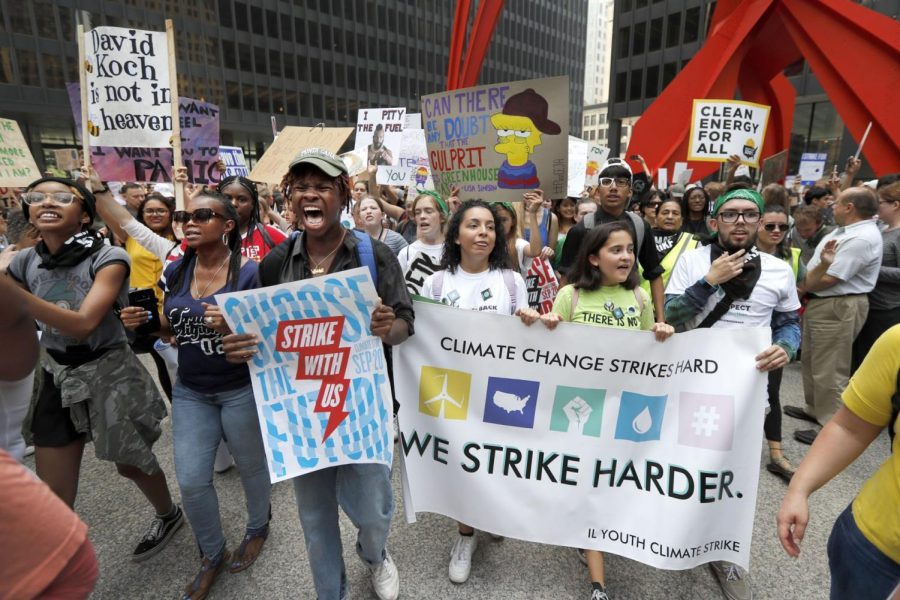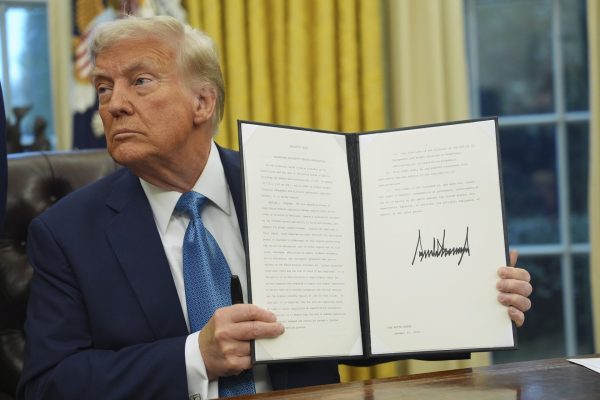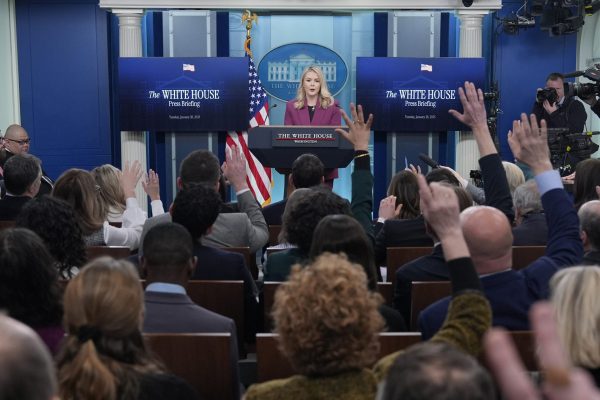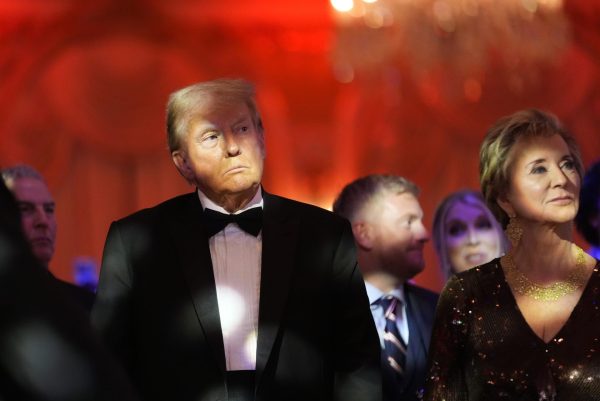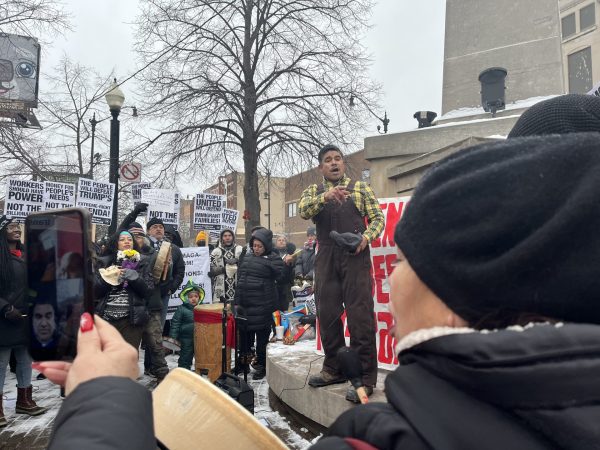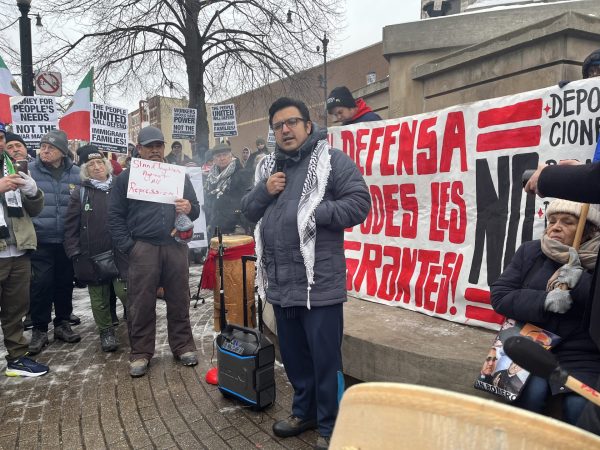Climate change weighs heavily on voters as election nears
Credit: Charles Rex Arbogast | AP
Protesters rally on the Federal Plaza inside the Loop during a global climate change march Friday, Sept. 20, 2019 in Chicago.
In the decades since climate change has been realized as a pertinent and time-sensitive issue, the discourse on the topic has often been reduced to a partisan deadlock. Abundantly clear in the 2020 presidential debates, the topic was often stripped to a question of the validity of science.
Dominik Stecula, assistant professor of political science at Colorado State University, said that the topic seemed to become politicized as the issue became more prominent in the public eye.
“It essentially entered the political realm and people began to view it as something that the only kind of legitimate access of competition is between the Democrats and Republicans,” Stecula said.
Split between the two major parties, political discourse on climate change often takes the form of denialism against recognition of the issue. According to 2016 Pew Research polls, Republicans are considerably less likely to trust research by climate scientists, with 48 percent of conservative Republicans believing that scientists should have a major role in policy decisions compared with 80 percent of liberal Democrats.
Stecula continued to say that public opinion is often shaped by prominent politicians and that leads climate change to becoming a polarized issue.
“Our public opinion is, is really shaped by how the political elites talk about issues, and that goes back to us being a very polarized country, and a place where being a Democrat or a Republican is such an important part to so many people’s identities,” Stecula said. “They take a lot of cues, a lot of messages from their trusted political leaders.”
Naya Ravelo, an undergraduate studying political science and sustainability at San Diego State University, said that the United States needs stronger federal leadership to take action against the growing climate crisis.
“I don’t think we can afford to have another four years under national leadership that doesn’t believe in or act on climate change,” Ravelo said.
Ravelo is the vice president of diversity and inclusion at her university’s chapter of Epsilon Eta, which brings together students with a passion for biodiversity and the environment.
Though Ravelo does not believe that Biden’s proposed Build Back Better plan, if elected, will be enough to reverse the effects, she says she is shocked to see a prominent political figure present a comprehensive plan on the issue. Biden’s sustainability plan promises to set the United States on a course to achieve net-zero emissions by 2050 while creating more jobs to further sustainable infrastructure.
“And it’s not perfect by any means, but to have one is a start, and I’m sure that [Biden] is the one that can most likely be influenced by citizen activism,” Ravelo said.
What the next US president does or doesn’t do over the next four years will have a profound impact on the whether the world is able to avert the worst effects of climate change, scientists, policy makers and activists say. https://t.co/tKnWQ4ODyV
— CNN (@CNN) November 2, 2020
In President Trump’s four years in office, he has successfully reversed more than 70 environmental rules and regulations according to a New York Times analysis. Many of the reversals have come from the Environmental Protection Agency which has weakened Obama-era limits on carbon dioxide emissions.
Mark Potosnak, associate professor of environmental science at DePaul University, says that though Trump has done very little on climate regulations, he has pushed domestic energy production.
“We’re still causing just as much emissions, but at least we own the process right now,” Potosnak said. “At least it’s more a domestic issue that mostly occurred before Trump’s administration anyway.”
Though more concrete plans on how to reverse the effects of climate change have emerged more prominently in political discourse, Potosnak says it is difficult to find a sustainable solution with “any kind of complexity.”
“That kind of political complexity, scientific complexity and need for a real systemic change — political discourse is just not well suited to those types of issues, it’s just not,” Potosnak said.


